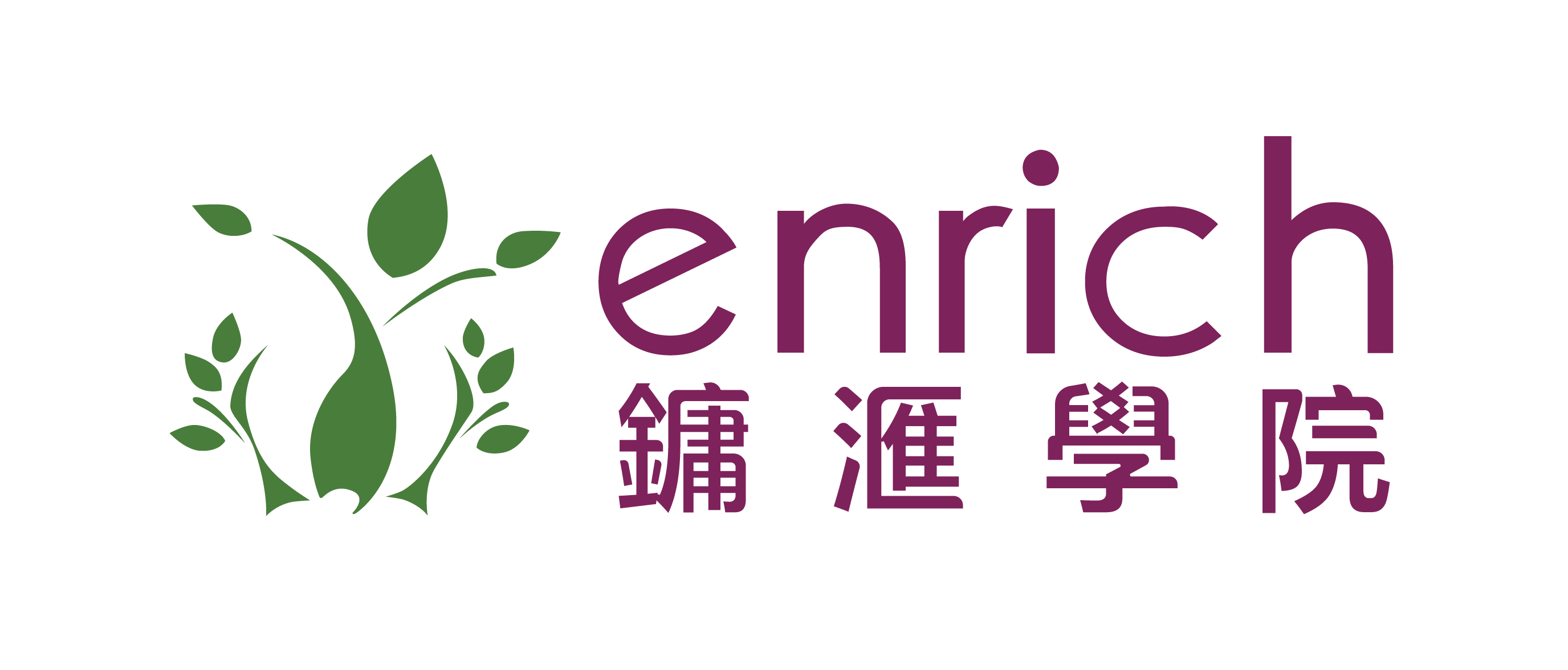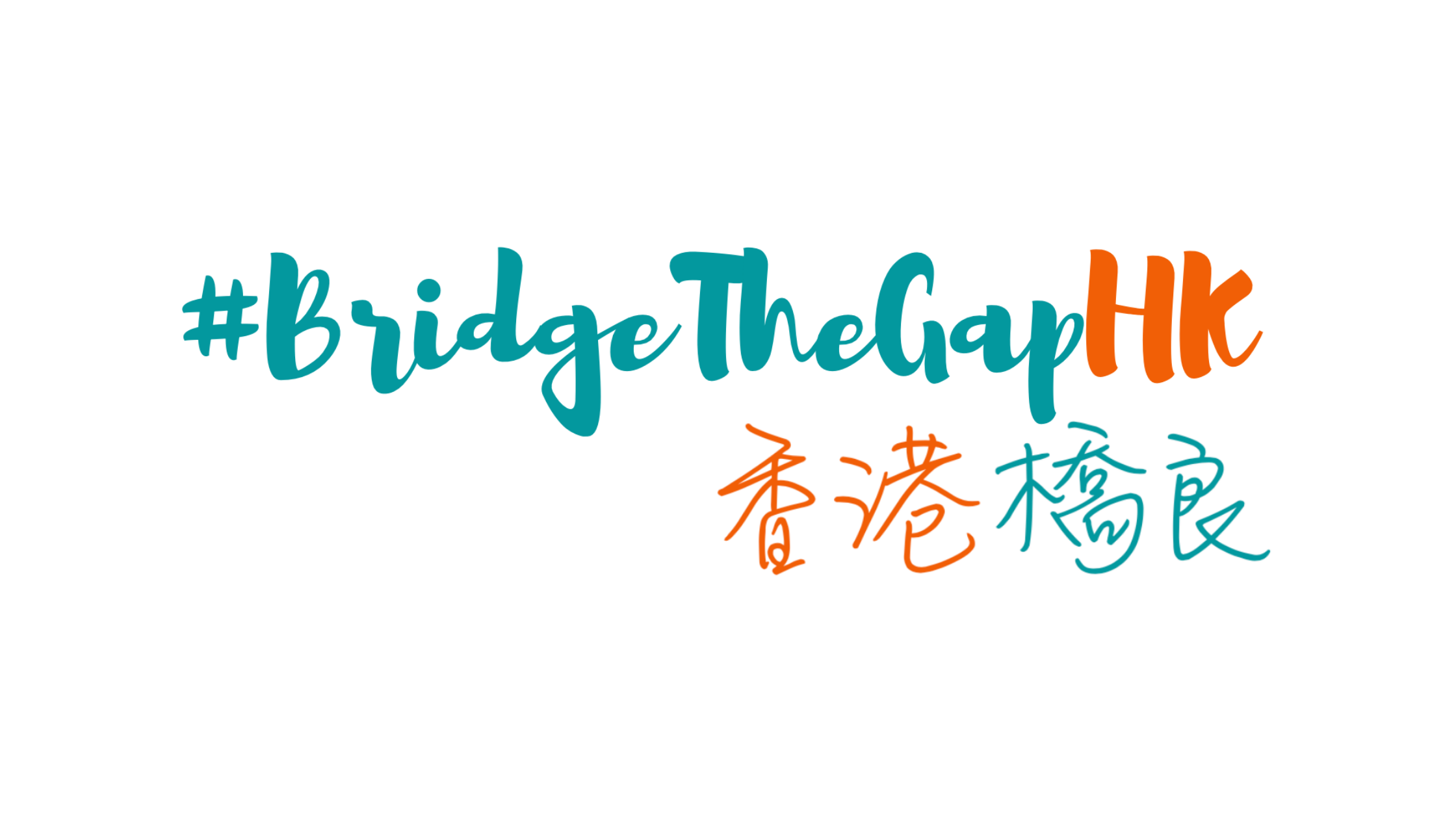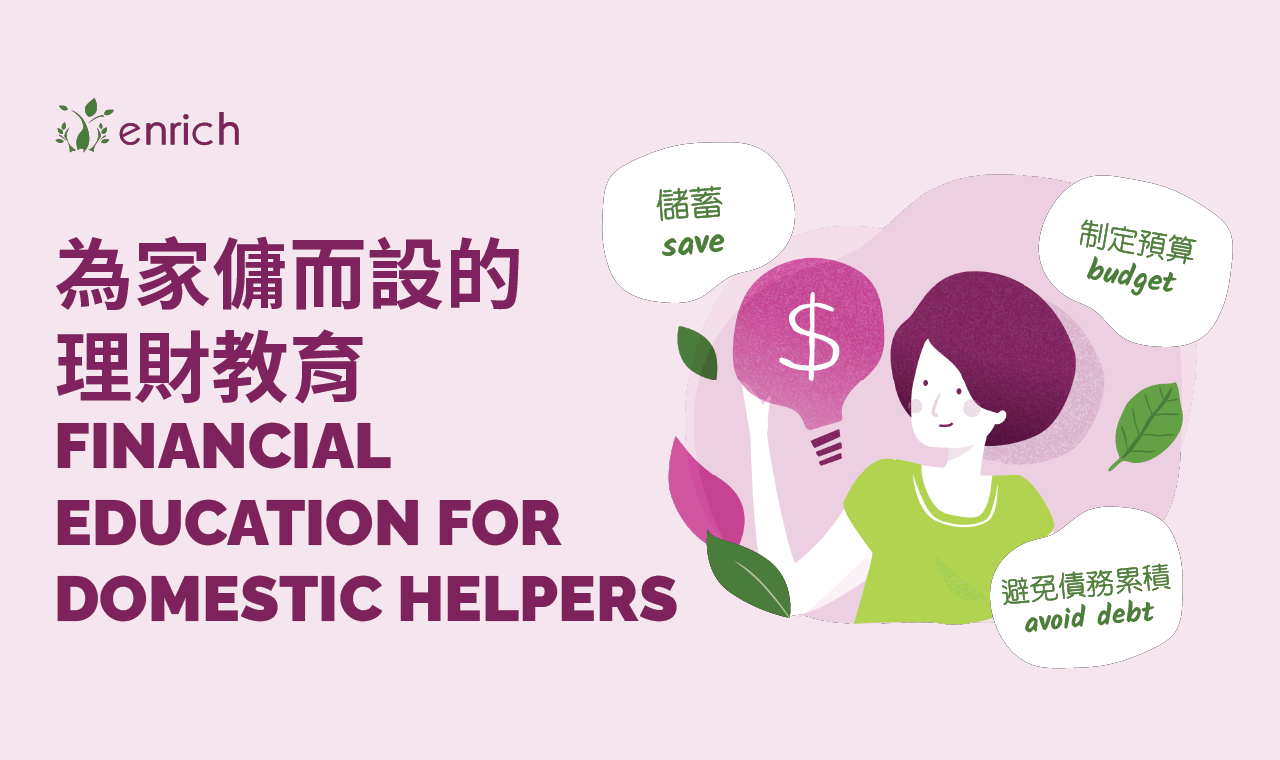HK01: Domestic workers are the economic lifeline of their home countries during COVID
The following interview with Enrich staff and our participant Juve (name changed) is translated from Traditional Chinese. The original article was published by HK01 on August 2, 2021, as the first in a series of articles on migrant domestic workers.
Author: Alexandra Lin
Summary: Hong Kong has recently experienced a shortage of migrant domestic workers (“MDWs”), and as employers compete and scramble to hire them, the salaries of some MDWs have risen. The pandemic has severely hit the economies of many countries, and in particular Southeast Asia. Many MDWs in Hong Kong shoulder the burden of supporting their families and have become the economic lifeline of not only their unemployed relatives but also their home country. This burden has pushed many MDWs into a debt trap, worsening their existing personal financial problems and making the day they save enough to return home even more distant.
After more than an hour, the plastic water cup in front of Juve (pseudonym) was still full. Except for quietly listening to questions or raising her head occasionally trying to think of how to express herself in English, Juve who is focused on the interview does not drink a sip of water.
Although she seems a little cautious and introverted in front of people she first meets, she considers herself a cheerful and optimistic person. Even so, there are moments of silence and there are little smiles going around. Her employer realized that something was wrong, and this is why she confessed to them, says Juve. Juve explains that her husband works in the travel industry. As soon as the pandemic began, he lost all of his income. All family expenses and loans had depended on his salary, and the family had little savings. “Before the pandemic, my husband and I each bore half the burden of paying for the family expenses. Now I have to bear my husband’s half as well.”
Domestic economic setbacks cause an increase of pressure on MDWs
According to data from the Philippine Statistics Authority, the unemployment rate in the Philippines rose from 5.3% to 17.7% in April 2020. This meant 7.3 million people were unemployed, a record high. Rising unemployment within the country has caused the financial burden of many families to fall on MDWs.
According to a survey conducted between May and June this year by the migrant domestic worker charity Enrich and employment platform HelperChoice, close to 70% of MDWs had their personal finances affected during the pandemic, and 43% of MDWs interviewed were forced to increase remittances to their home country.
For the whole year, the GDP of the Philippines fell by nearly 10%, the worst since 1947. In particular, the service industry which accounted for 60% of the country’s GDP, and the industrial sector which accounted for 30%, suffered heavy losses. At the same time, a large number of Filipino overseas workers (OFWs) are also unemployed due to the economic downturn in their respective countries of employment. As a result, financial institutions such as the Asian Development Bank, predict that overseas remittances, which are the lifeline of the Philippine economy, will also be significantly reduced. However, recent data released by the Bangko Sentral ng Pilipinas confirmed that total remittances of OFWs only shrank by 0.8%, maintaining a high of nearly 30 billion U.S. dollars, equivalent to 8.2% of the total GDP in the same year.
At the beginning of the pandemic, Juve and her family’s financial situation was not too dire. Other than daily expenses, her family’s main expenditure was a medium-sized tourist bus that her husband bought with a loan two years ago. This was also a source of income for the family of six and half. Although the family has tried to save money where they can, life with 3 daughters, a mother and a cousin means living expenses cannot be cut down easily.
In the past, Juve would remit a regular amount to her family and put aside some money for savings. This left 40% of her income for discretionary spending. Juve would use this to buy clothes for herself, and chocolate and other snacks for her three daughters. Now, she only spends 5% of her income on herself. In order to save money, she doesn't even go out on rest days.
Despite Juve’s best efforts, her savings hit rock bottom in September.
On the other end of a phone call, her husband asked her to borrow money in Hong Kong. "He doesn't want to lose that bus." Juve understood his struggles. But before coming to Hong Kong, she had heard too many stories about Filipino MDWs being unable to escape debt after borrowing in Hong Kong. She also knew that most employers would not allow MDWs to take out loans, but she made up her mind after careful consideration. "We can't imagine, if we lose this bus, how can we start our business again?"
Aggravated debt problems
Zamira, Communications Manager of Enrich, which provides financial education for MDWs in Hong Kong, told HK01 that the biggest challenge faced by MDWs during the pandemic is debt. "This is a problem that existed before the pandemic, but it has worsened.” To meet the growing needs of MDWs, Enrich is preparing to launch its first debt management programme for MDWs in August.
“Too many MDWs encounter debt and financial problems, but they don't have anyone that they can turn to. They cannot talk about their financial problems openly or understand how to escape debt permanently.” – Zamira
According to Hong Kong's Money Lenders Ordinance, debt companies can charge borrowers up to 48% of annual interest. If the borrower has a bad loan history, or is considered a high-risk borrower for other reasons, he can be charged up to 60% of the annual interest. Zamira says “This is how you can understand, for MDWs, why loans can easily and quickly grow and spiral out of control.”
Economic development with unemployment
Like many Filipino MDWs who work overseas, Juve came to Hong Kong in order to pay for her eldest daughter’s university fees. When she worked as an employee of a construction company in the Philippines, she only earned half of what she could in Hong Kong as a MDW, not counting various deductions such as personal income tax. Additionally, working as a MDW removes the cost of daily meals and lodging.
Before COVID, the Philippine economy achieved long-term steady and rapid development, reaching an average annual GDP growth of 6.2% between 2010 and 2015. However, this did not translate into an increase in high-quality employment opportunities.
Mary Lou Alcid, a sociology scholar who has been engaged in research on overseas labor issues in the Philippines for decades, explained "In our country, economic growth is driven by consumption, so it is a form of jobless growth." She says remittances from OFWs also play a role in driving growth in consumption activities.
Looking at the economic structure of the Philippines, the service industry, which accounts for nearly 60% of GDP, is undoubtedly the backbone of the country’s economy. It employs 56% of the country’s labor force. The most important sector of the service industry is what is called the business process outsourcing, followed by the tourism industry, which contributes 10% of GDP. The jobs of the former are especially characterized by low income and low technical requirements.
Alcid says the minimum wage for MDWs in Hong Kong is much higher than that of ordinary employees in the Philippines.
“Unless you have an outstanding academic performance and come from a top university in the Philippines…if you’re just an ordinary university graduate, it is difficult to find a job with a monthly salary of more than 20,000 pesos (about HK$3,100).” – Mary Lou Alcid, sociology scholar
When will reliance on the export of foreign labour end?
Although the Philippine government insists that the export of foreign labor is not a national development strategy, for decades, it has remained the go-to solution to resolve domestic economic and employment problems.
In the economically difficult period of the 1970s, the labor bill was promulgated and a series of domestic and foreign institutions were established to handle foreign labor affairs and protect their rights and interests. By 2001, the Philippines was facing severe unemployment and the country referred to foreign workers as the "reasonable choice of national labor force" in the national economic development plan. The plan also formulated four major strategies to promote the employment of overseas workers. Today, overseas labor has gradually increased and so has the amount of remittances, which support the domestic economy and people’s livelihood. Former President Gloria Macapagal Arroyo’s promise to make overseas work a choice of the people rather than a must, has not been realized so far.
Alcid states the current government from time to time says it looks forward to the day when Filipinos would no longer be forced to immigrate for work, but she believes that these words are just linguistic hypocrisy. “In reality, there are no plans to help us achieve this goal.”







